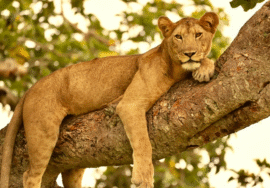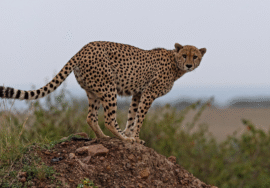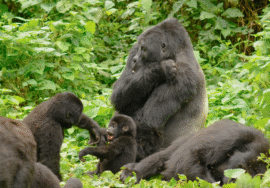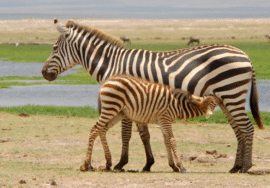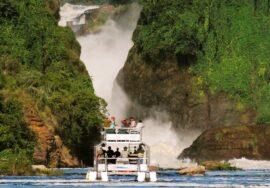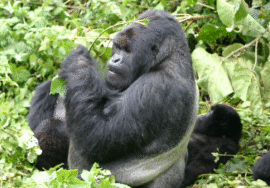Mount Kenya National Park
Mount Kenya National Park
Mount Kenya national park is a UNESCO world heritage site located in central Kenya approximately 150km northeast of Nairobi. The Park is a home to Africa’s second highest peak, Mount Kenya and offers a breathtaking scenery, diverse wildlife, lake views, glaciers, dense forests, mineral springs and exciting outdoor activities. The mountain was formed around 3 million years ago and the highest peak is named Batian at 5,199 meters high. There are a total of three major peaks in the central area and 12 remaining glaciers lay on the mountains, which are all receding. Besides, the park has been considered as a holy mountain by the Meru and Kikuyu people who are present in the area, they get herbs for traditional healing from this ancient mountain. Another key point other than Mount Kenya its self, the park also provides an important water catchment area for River Tana and the presence of peaks which has made the reserve more attractive to tourists especially those interested in adventurous activities such as hiking.
Activities in Mount Kenya National Park
Hiking
Mount Kenya National Park offers diverse hiking trails for various skill levels, from easy day hikes to challenging multi-day summits. There are several trekking routes to choose all providing breathtaking sceneries and wildlife experience on the way up i.e summit circuit, Sirimon route which is the most popular route to Lenana, Naro moru route, Chogoria route with the most stunning views and lastly Burguret route which it less crowded to point Lenana. To emphasize, pack warm clothing and gear, bring sufficient water, snacks and lastly respect park rules and wildlife. Accommodation is always available at the stopping points offered in tents.
Game viewing; the park offers diverse wildlife viewing opportunities despite of its rugged terrain. Game viewing areas include; Mount Kenya’s lower slopes which are habitats for elephants, buffalos and monkeys, Naromoru River which is a watering hole for various wildlife species. Other wildlife in the area include; hyenas, lions, leopards, bush pigs, elands, giant forest hogs, duikers, antelopes among others. Climbers are increasingly turning to Mount Kenya for their African climbing experience as Kilimanjaro becomes too crowded. Not only will you escape the crowds, but the mountain can offer more interesting scenery with the many different lakes and a higher diversity of animals and plants to see en-route. Endeavor to be quit during game drives, keep a safe distance from wildlife and lastly carry binoculars for enhanced views.
Bird watching
Over 130 bird species are documented in the park thus making it a renowned destination for birdwatchers. Birding hotspots include; Lake Ellis, Naromoru River, Sirimon track, gathiuru forest and mountain forest for the montane birds. Birds spotted include; African fish eagle, white-backed vulture, golden winged sunbird, augur buzzard, grey heron, hadada Ibis, little grebe, lammergeyer and many others. Carry your binoculars and spotting scopes and wear comfortable hiking shoes.
Cultural encounter
The Park offers opportunities to experience the rich cultural heritage of the surrounding communities. To begin with are the Kikuyu indigenous people of the region known for their farming and trading traditions, the Meru community living on the eastern slopes of Mount Kenya known for their basketry and pottery, the Embu people living on the southeastern slopes famously known for their traditional dances. Visit these local communities and explore local villages, witness vibrant performances such as the Mwomboko dance, listen to tales about the region’s history, and lastly learn about traditional crafts like pottery and basketry extra.
When to visit Mount Kenya national park
The best time to visit Mount Kenya national park depends on your interests and what you want to experience however you’re advised to travel in dry seasons of June-October and green seasons of November-May.
How to get to the Park
Mount Kenya is accessible by road from Nairobi via Nyeri which is approximately 3-4 hours’ drive and by air from Nairobi Wilson Airport through Nanyuki.

